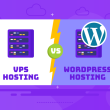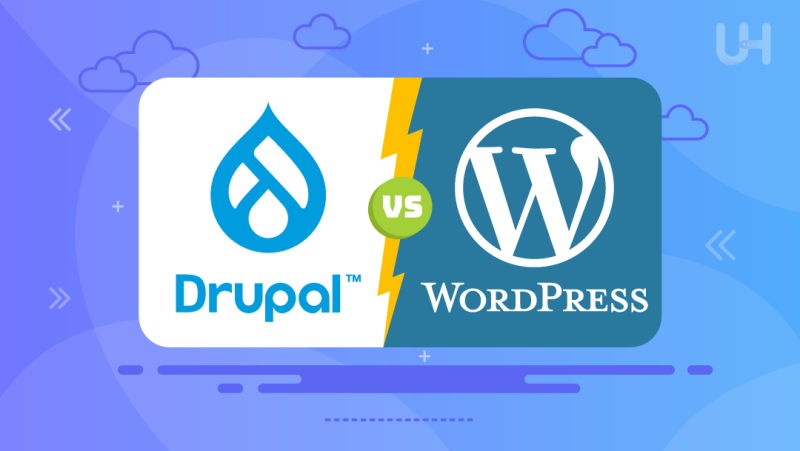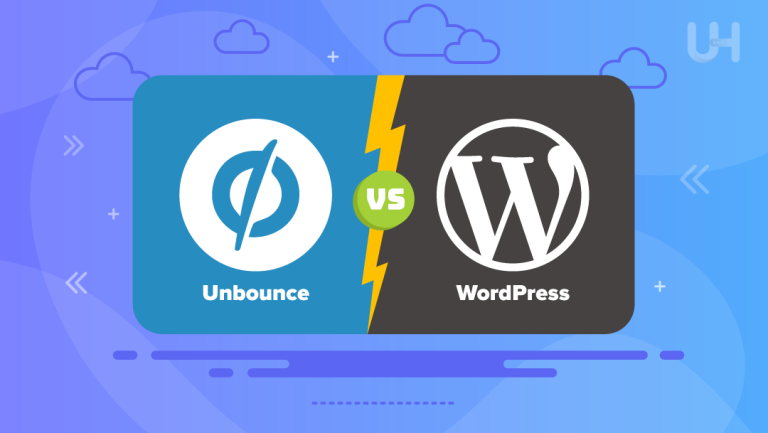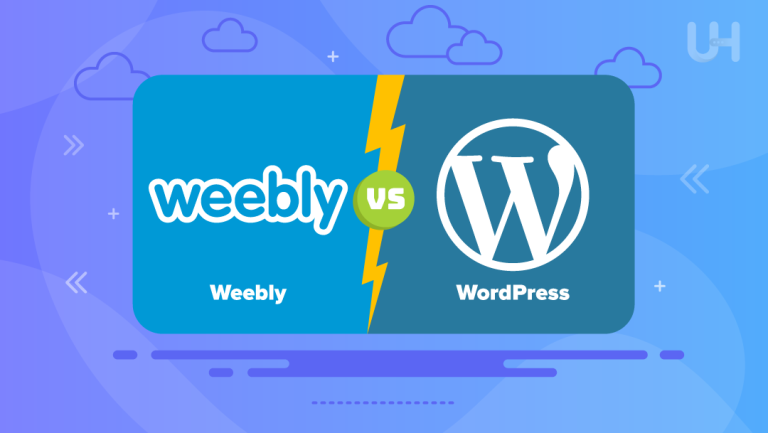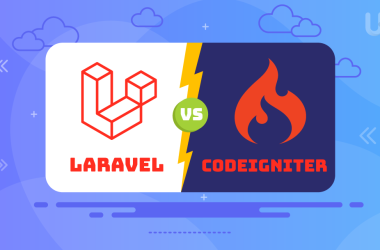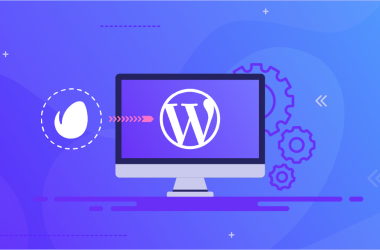WordPress and Drupal are two of the most popular website builders in 2024. They are easy to set up, accessible, affordable, and help users build new websites from scratch in a few minutes. While both CMSs offer essential features, you should choose one based on your requirements. So, the question is, Drupal vs WordPress, which is the better choice in 2024? Let’s find out!
Whether you plan to launch a business website, set up an e-commerce store, start a blog, or establish your brand’s online presence, choosing the right Content Management System (CMS) for the job is crucial. The perfect CMS should be easy to use, cost-effective, offer essential features, and streamline your efforts.
In this article, we explore the two most popular website builders in 2024 (Drupal vs WordPress) and help you pick the right one for your business.
WordPress vs Drupal: A Quick Overview
When choosing between Drupal vs WordPress, you must compare the similarities. Both are open-source platforms with comprehensive website-building capabilities. Both CMSs provide an extensive list of tools, widgets, and plugins for digital asset management, multichannel content publishing, performance analysis, and SEO.
WordPress is ideal for bloggers, publications, e-commerce stores, startups, SMEs, and non-profits. It is beginner-friendly, affordable, and easy to set up without professional guidance.
On the other hand, Drupal is a flexible CMS with a higher learning curve. Therefore, it is more suitable for complex projects and work environments. If you use Drupal without prior web development experience, you must get used to the terminology and interface.
Drupal: Key Features and Functionalities
Drupal is a proven CMS that offers a robust foundation for building and maintaining websites. Here are its key features.
- Straightforward Content Creation: Drupal has a user-friendly interface that streamlines content creation.
- Front-End Builder: You can edit the website’s layout using the intuitive drag-and-drop builder.
- Seamless SEO: Drupal offers several tools for keyword management, generating sitemaps, measuring performance, and website optimization.
- Cutting-Edge Security: Drupal regularly provides security updates for 24/7 protection against cross-site scripting and brute force attacks.
- Managed Workflow: Several reliable tools are available for managing content changes and defining the workflow for smooth verification.
- Multi-Language Support: Drupal supports over 100 languages, streamlining translations for landing pages, posts, contact forms, and more.
Pros
- Drupal is completely customizable out of the box. You can build complex data structures using Content Types over a weekend.
- Drupal is extremely coder-friendly. You can build complex websites pretty quickly with basic programming knowledge.
- Drupal regularly provides security patches and bug fixes to protect websites from malicious attacks.
- The Drupal community is highly robust and the support team has the most brilliant brains from around the world.
- Drupal can extend its services to other platforms via API from front-end team workflows.
Cons
- Drupal has a large learning curve.
- Does not support backward compatibility before Drupal 8. Updating full versions, for example, Drupal 6 to 7, is a hassle.
- Flexibility comes at a cost. In Drupal’s case, it means running lots of codes on a single website. Without proper optimization, bloating is a major concern and can significantly increase load times and resource consumption.
Elevate Your Business with Fast WordPress Hosting
Whether you plan to launch a business website, start a blog, or open your e-commerce store, our Fastest WP Hosting solutions offer the power and flexibility you need for both Windows and Linux operating systems.
WordPress: Key Features and Functionalities
WordPress offers a simple interface with hidden capabilities that developers can leverage for advanced customization. Here are its key features.
- Beginner-Friendly Interface: WordPress is easy to use, even for first-timers. The instructions are pretty straightforward, and you don’t need coding skills to create and customize your website.
- Easy Installation and Upgrades: WordPress is universally compatible, meaning you can install the CMS on any website, irrespective of your hosting preferences. Find a secure WordPress host and install the website builder with just one click.
- Flexible Website Builder: WordPress allows you to create many types of websites, from business sites and photoblogs to educational websites, magazines and news websites, and more.
- Easy Publication: Crafting and publishing content is pretty straightforward with WordPress. You can add new pages, write blogs, insert media, and format content easily with a few clicks.
- Simplified User Management: Create multiple user accounts for various roles in your organization. Administrators, editors, and authors contribute to your website differently. You can assign and manage user accounts from a unified dashboard.
- All-in-One Media Dashboard: Add, edit, and manage media files on your website from a single dashboard and never lose an asset again.
- W3C Complaint: Every single code on a WordPress website complies with W3C standards. This means that your website is accessible on every browser in the market.
- Complete SEO Control: WordPress is search engine optimized right out of the box. You also get thousands of SEO plugins to enhance website visibility further.
- Multi-Language Support: WordPress supports over 70 languages. Localize your website for your target audience with a few clicks.
- Extensive Tools and Widgets: WordPress comes loaded with an extensive plugin directory. You can customize your website the way you want with thousands of free and paid widgets.
Pros
- WordPress is beginner-friendly and easy to set up.
- The CMS is flexible and scalable, with thousands of themes and plugins at your disposal.
- WordPress sites are responsive on different screen sizes and SEO-optimized from the beginning.
- WordPress offers excellent blogging tools.
- The website builder is free to use, although you will need a WordPress web server hosting, domain name, and premium plugins.
Cons
- Highly customized WordPress websites often need multiple plugins to operate. This can hurt your site’s speed and performance and drastically increase load times.
- WordPress sites are sometimes prone to hacking since the software is open-source. You can mitigate the risk with security plugins.
- WordPress sites are prone to unexpected downtimes.
Drupal vs WordPress: Which One Should You Use?
If you are stuck between Drupal vs WordPress and wondering which one makes more sense for your business, here are five points of comparison to help you decide.
Ease of Use
WordPress and Drupal are both capable CMSs, but the former is more accessible to beginners. For example, a team of freshers can be trained to use WordPress in a few hours, but learning Drupal is a little more complicated. You must be skilled in HTML, PHP, and other languages to customize a Drupal website beyond the standard layout.
Performance
Drupal isn’t as resource-intensive as WordPress. Hence, websites built on the platform load quickly. Drupal offers excellent extensions like the one to enable website caching, which improves overall performance. Hence, it’s the better choice for hosting resource-heavy websites.
Security
Whether you pick Drupal or WordPress, you can expect similar security standards. However, the former takes things a step further by restricting the widget library. Although WordPress is very safe, the extensive plugin directory leaves room for security lapses. That, along with the high popularity of the WordPress CMS, makes it prone to security threats
SEO
Drupal websites can be a little challenging to optimize unless you are fluent in programming. The CMS has several built-in SEO extensions, like Yoast, to help you track and optimize your SEO score. WordPress, on the other hand, is optimized right out of the box. Additionally, you can access several excellent plugins to streamline your SEO efforts.
Scalability
WordPress and Drupal are open-source platforms, meaning you can build and manage your website with relative ease. Both CMSs have content repositories and can deliver content to your blog, social media handle, and apps via APIs. However, Drupal customizations can be more challenging to implement as you need basic coding skills to locate, install, and set up these extensions.
Conclusion
Finding the right CMS for your website is crucial for establishing your online presence. Whether Drupal or WordPress is the better choice depends on your requirements. Both CMSs offer helpful features out of the box. Pick one that suits your business the most.
If you are planning to create a website and want cost-effective hosting solutions, check out Ultahost’s Affordable WordPress Hosting plans, starting at just $2.90/month.
FAQ
What Should I Choose, Drupal or WordPress?
WordPress is more user-friendly compared to Drupal. Unless you have extensive coding skills or need manual customization, WordPress is the better choice. It has a vast plugin database for a multitude of tasks, and most hosting sites support WordPress.
WordPress vs Drupal: Which is Easier to Use?
Both WordPress and Drupal offer one-click installation. However, the former is more manageable for beginners due to clear instructions, the drag-and-drop builder, universal compatibility, and extensive community support.
Drupal vs WordPress: Which is Better for SEO?
WordPress has more built-in SEO plugins, making it the better choice for beginners. However, if you have the technical skills to install and configure SEO features, Drupal can be equally effective.
Can I Migrate from WordPress to Drupal or Vice Versa?
Yes, you can migrate from WordPress to Drupal or vice versa. However, the process is complicated, and you will need to do it manually. Even the slightest mistake can mess up your website, so migration is best left to the professionals.
WordPress vs Drupal: Which One Costs Less?
WordPress and Drupal are both open-source platforms and are free to download. However, the cost of building your website will depend on the theme, extensions, and plugins you use. WordPress offers a more extensive selection of free plugins, which could help keep the costs down.




